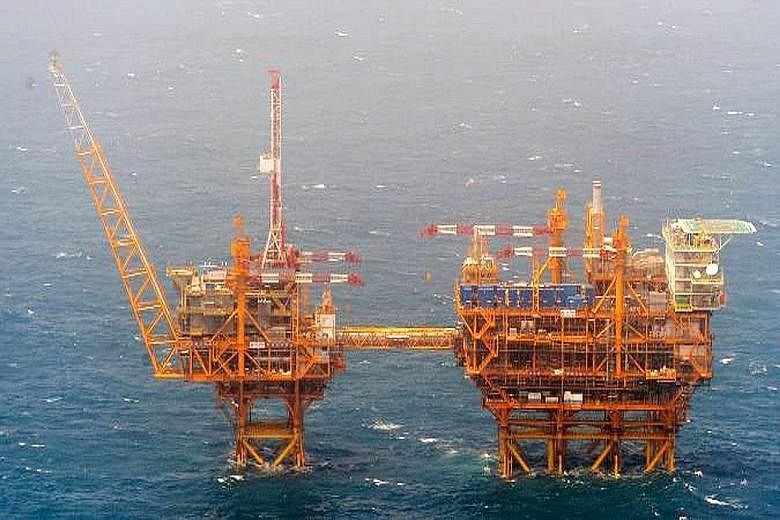TOKYO • China has put 16 drilling rigs close to its de facto maritime border with Japan, Tokyo said yesterday, in the latest twist in a row over gas fields in waters disputed by the two countries.
The Japanese government released diagrams showing the location of platforms which it says could exploit undersea reserves over which the two countries are at loggerheads.
"It is extremely deplorable that China is unilaterally developing resources while the border has not been settled," Chief Cabinet Secretary Yoshihide Suga told reporters.
The platforms have all appeared despite a June 2008 agreement in which the two countries said they would jointly develop the area in the wake of friction over who had the right to exploit the resources.
Of the 16 rigs, 12 were installed in the last two years, Japan said.
The Japanese government's claims came a day after Tokyo issued a defence review - or white paper - that called on Beijing to stop building oil and gas exploration platforms close to disputed waters in the East China Sea.
This prompted protests from China.
The Chinese Defence Ministry said in a statement late on Tuesday that it reserved the right to a "necessary reaction".
"This kind of action completely lays bare the two-faced nature of Japan's foreign policy and has a detrimental impact on peace and stability in the Asia-Pacific region," the statement said.
China would further evaluate Japan's defence review when the full text is issued and would then make a "necessary reaction depending on the situation", it said.
Chinese Foreign Ministry spokesman Lu Kang said the defence review ignored that China's maritime activities were carried out in line with international law, according to a separate statement also posted late on Tuesday.
"The Diaoyu islands have belonged to China since ancient times....
"China will continue to take necessary measures to safeguard its territorial sovereignty and Japan should not hold any unrealistic illusions," he said, referring to the disputed chain of islets, also known in Japanese as the Senkaku.
Yesterday, Mr Suga said of the platforms: "Japan has repeatedly lodged protests against China's unilateral development.
"However, China has been negative on resuming talks over implementing the June 2008 agreement, even though its activities appear to be continuing."
Tokyo has long suspected that Beijing would violate the joint development agreement for the field, which lies in an area where both countries' claimed exclusive economic zones (EEZs) overlap. Japan says the median line between the two nations should mark the limits of their respective EEZs.
But China insists the border should be drawn closer to Japan, taking into account the continental shelf and other features of the ocean.
But Mr Suga said the dispute would have no impact on Sino-Japanese ties, which have thawed a little since Prime Minister Shinzo Abe met Chinese President Xi Jinping last November.
Speculation has been growing that the two leaders might meet again as early as September after a chat in Jakarta in April.
AGENCE FRANCE-PRESSE, REUTERS

